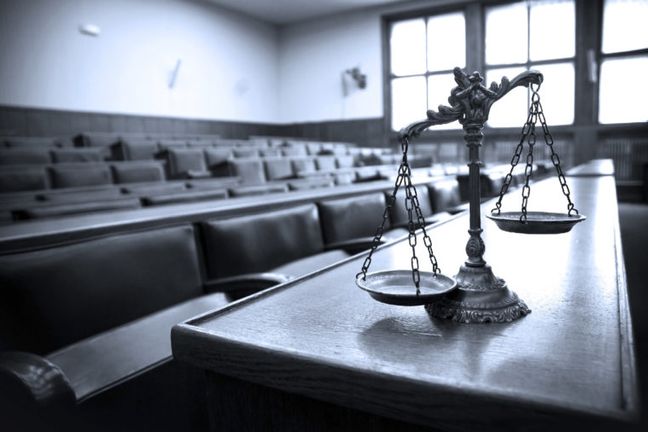Two Recent Florida Fifth DCA Opinions Highlight Questions of Improper Statements at Closing Argument, and one Florida’s First DCA Opinion Interprets the Statute of Repose
Aldonia Mootry, as Personal Representative of the Estate of Russell Mootry, Jr. v. Bethune-Cookman University, Inc. et al.,44 Fla. L. Weekly D1999a (Fla. 5th DCA 2019)
Florida’s Fifth District Court of Appeals (“DCA”) reversed judgment in favor of the defense and remanded the case for new trial after defense counsel’s improper statements in closing argument.
Background
The case involved a claim brought by the plaintiff for breach of an employment contract. This was the second time the matter had gone to trial. The plaintiff was a tenured professor terminated following allegations of sexual harassment made by students and other professors. As part of its investigations into the allegations, the university hired an individual to conduct interviews detailing the allegations of sexual harassment. The individuals then compiled the results of the interviews =into a report.
The First Trial
In the first trial in this matter, the court permitted the university to introduce the investigative report into evidence, notwithstanding the fact that it contained numerous hearsay statements. Judgement was found in favor of the university. On appeal from the first trial, the Fifth DCA reversed based on the erroneous admission of the inadmissible hearsay statements and other improper opinions testified to by the university’s counsel.
The Second Trial
At the second trial, the court permitted the investigator = to testify generally as to the actions he took during his investigation, but did not admit his report into evidence. Additionally, the investigator did not testify as to the statements he received from the unnamed complainants during his investigation.
During its closing argument, the university’s counsel made the followings statements, which defense counsel objected to by defense counsel, but ultimately the court overruled.
I’ll say to you, I think the reason why we don’t agree on the question, if I might ask — if I might suggest to you, and I think the reason he wants to argue whether or not there’s sufficient evidence is because in a setting like this, in the court system that we’re in, with the rules of evidence that we have, you are not afforded the same opportunities that the University had with regard to making the decisions it has made, and you you’ve seen that. You’ve seen the objections as it relates to that.
So you don’t have the same evidence the University had, so we can’t present that to you. And that’s not fair to us if that’s the question.
…
So, okay, I don’t have to prove to you — the answer, going back to the question the judge is going to ask you: Was there a material breach? No. But, okay. Is there sufficient evidence? I’m going to play the game. Is there sufficient evidence? I don’t have to prove this to you, and I can’t show you everything. You haven’t seen everything.
. . . .
And you know what? When that happens, change the question; right? Divert the ball to another question. So what are they asking you to do? They’re asking you all to disregard the judgment, the decision that was made by his peers, the president of the university, outside learned counsel, and all the other people involved, who, in all fairness, have the benefit of more information than you because of the system that were here.
They want to disregard that. That’s not fair. That’s not fair to the process. It’s not fair to Bethune-Cookman, but that’s what they’re asking you to do.
Counsel for the university advised the jury that the university had evidence that the parties had not presented to the jury and improperly stated that the jury’s inability to receive that evidence was “unfair” to the university. The university’s counsel also implied that the additional evidence would have been favorable to the university and that, in reaching its verdict, the jury should recognize that the university had the benefit of more information in deciding whether to terminate the plaintiff’s objection.
Holding
While attorneys are allowed a broad latitude in presenting their case to a jury, an attorney should at all times confine their argument to the evidence and issues presented, with the logical deductions therefrom. Arguing facts not in evidence or not warranted from the evidence is not permitted in Florida’s trial courts. Here, the Fifth DCA found these arguments as improper, impermissible, and highly prejudicial. It reasoned that the trial court should have sustained the plaintiff’s objections to the arguments, and the failure to do so resulted in harmful error, thus necessitating the reversal and new trial.
R and W Rental Properties, LLC v. Warry Warnick, 44 Fla. L. Weekly D2044a (Fla. 5th DCA 2019)
Florida’s Fifth DCA recently reviewed whether statements in closing argument violated the “golden rule” and highlighted the importance of preserving objections.
In this case, the plaintiff sued the defendant for negligence. The plaintiff sustained injuries after he stepped onto particleboard and fell through the ceiling while inspecting the attic in a house owned by the defendant. The plaintiff alleged the defendant failed to warn him about the particleboard and failed to correct the danger it created. Defendant argued any dangerous condition was open and obvious.
Throughout its entire case, the defendant’s theme was that the plaintiff, a professional home inspector, should have been able to detect that the board at issue, was in fact particleboard and he should have known the dangers of walking on particleboard.
At the beginning of his closing argument, defendant’s counsel stated:
Good afternoon, folks. This is the last time I’m going to be able to talk to you on behalf of my client, and I want to thank you for being very, very attentive and sharing your time with us. You know, sometimes you get picked, as you are, in a special — a very special position, being a juror, and jurors are the gatekeepers. They’re the ones that hear litigation, hear cases, and make a decision that, in this case, we would submit to you, that — that can protect the homeowners of Volusia County . . .
Plaintiff’s counsel object and moved for a mistral, arguing the comment about protecting homeowners was an improper “golden rule” violation. The court denied the motion and the jury ultimately returned a verdict for the defendant. After the court dismissed the jury, the court granted the motion for mistrial, stating that it perceived the comment made by defense counsel to be “a violation of the Golden Rule.”
A “golden rule” argument urges the jury to place themselves in a party’s position to allow recovery as they would want were they the party.[1] To be impermissible, the argument must strike at the sensitive area of financial responsibility and hypothetically request the jury to consider how much they would wish to receive in a similar situation.[2] Here, defendant’s counsel did not ask the jurors to assume the position of either party, nor did the statement strike into the sensitive area of financial responsibility. Thus, in its review the Fifth DCA did not find the argument as one which violated the Golden Rule.
Interestingly, the Fifth DCA did posit that the argument may have been an improper “conscience of the community[3]” remark (one that extends to all impassioned and prejudicial pleas and is intended to evoke a sense of community law through common duty and expectation). However, such an objection was not made, and was not properly preserved. Therefore, the Fifth DCA could not consider whether the remark was an improper conscience of the community argument, and reasoned that the trial court should have only granted a new trial if the argument was improper, harmful, incurable, and so damaging to the fairness of the trial that “the public’s [confidence] in our system of justice requires a new trial.”[4]
In the end, the Fifth DCA did not feel the single, isolated comment in the context of the entire trial was enough to warrant a reversal of the juror’s decision and a new trial. Therefore, the 5th DCA reversed the trial court’s order, and remanded with instructions to reinstate the verdict.
James Harrell v. The Ryland Group, 44 Fla. L. Weekly D2054b (Fla. 1st DCA 2019)
Florida’s First DCA did a thorough analysis and interpretation of Florida’s Statute of Repose.
Background
In June 2016, the plaintiff filed an amended complaint against the defendant for injuries he sustained in June 2012 when an attic ladder he was climbing at a residential home collapsed underneath him. Plaintiff alleged defendant constructed and sold the home prior to June 6, 2012, and was negligent by failing to ensure that the attic ladder was installed in a secure manner with the appropriate hardware and by failing to verify that the ladder was secure before selling the home
Defendant filed a motion to dismiss and subsequently a motion for summary judgment. The basis of the motions was that plaintiff’s claim was time barred by Florida’s ten-year statute of repose, Section 95.11(3). The statute states:
An action founded on the design, planning, or construction of an improvement to real property, with the time running from the date of actual possession by the owner, the date of the issuance of a certificate of occupancy, the date of abandonment of construction if not completed, or the date of completion or termination of the contract between the professional engineer, registered architect, or licensed contractor and his or her employer, whichever date is latest; except that, when the action involves a latent defect, the time runs from the time the defect is discovered or should have been discovered with the exercise of due diligence. In any event, the action must be commenced within 10 years after the date of actual possession by the owner, the date of the issuance of a certificate of occupancy, the date of abandonment of construction if not completed, or the date of completion or termination of the contract between the professional engineer, registered architect, or licensed contractor and his or her employer, whichever date is latest.
The relevant evidence in this case demonstrated a contract date between the defendant and the original owners in July 2003. The contract included an option for “pull down attic stairs”. A certificate of occupancy was issue for the home in April 2004. A warranty deed reflected defendant’s conveyance of the home to the original owners, who took actual position of the home, in May 2004.
The evidence demonstrated that all construction activities of the home were complete and paid for, and that the original owners took actual possession of the home on May 7, 2004. The plaintiff argued Florida’s statute of repose did not apply because “‘the act of fastening of a pre-assembled attic ladder does not constitute design, planning or construction of an improvement to real property,’ and if the statute were applicable, [the defendant] failed to establish the alleged negligent act occurred more than ten years prior to the action being filed because it has not shown when the ladder was installed.”
The trial court found the installation of the attic a ladder was an improvement to real property and the statue of repose applied, thus any claims relating to the home expired ten years later, on May 7, 2014.
Holding
On appeal, the First DCA refereed to the dictionary to ascertain the plain and ordinary meaning of the word’s construction and improvement because the statute did not define either. In analyzing the language in the dictionary, the court reasoned that the attic ladder is unquestionably an addition to real property, and it provides added utility. The pull-down stairs provide convenience as they obliviate the need to have a standalone ladder tall enough for attic access that one then has to carry to and properly place under the attic opening. The court noted, nothing in the statutory language or dictionary definition requires the addition to significantly increase the value or utility of the property or to be essential to the property. The court held the attic ladder meet the current definition of improvement.
The court also referred to prior judicial precedent regarding improvements to real property and the ways in which other courts interpreted Florida’ statute of repose, in order to complete its evaluation of whether the ladder fit the meaning of an improvement to real property under the statute of repose. In the cases reviewed by the Court, improvements were noted as being those which were installed as part of the construction of the home, and/or required labor and money, and/or made the property more useful/valuable in that it provides a more convenient means of access to another level, and/or was not mere repair or replacement, and/or was affixed to the home, making it an integral part of the home. In analyzing those opinions with the facts of this case, the Court held that case law supported the conclusion that the attic ladder was an improvement to the real property.
Having concluded the attic ladder constituted an improvement to real property, the court had to determine whether plaintiff’s claim arises from the construction of that improvement. Here, although the ladder itself was not constructed by the defendant, the defendant did affix the ladder to the home. The plaintiff’s claim in the case was not that the ladder itself was defective, but that the defendant failed to ensure the secure installation of the ladder with the property hardware. Thus, the appellate court held the plaintiff’s claim arose from the construction of the improvement.
In the end, the First DCA agreed with the trial court. The court held that the 10-year statute of repose began to run on May 7, 2014. Thus, the time limit to bring a claim would have been on May 7, 2014. In light of the fact that plaintiff’s complaint against defendant was filed in June 2016, the claim was time barred.
Haldon Greenburg is an Associate at TYSON & MENDES, LLP, and his practice focuses primarily on personal injury and general liability litigation. Mr. Greenburg has extensive litigation and trial experience.
[1] Shaffer v. Ward, 510 So. 2d 602, 603 (fla. 5th DCA 1987).
[2] Metro. Dade Cty. v. Zapata, 601 So. 2d 239 (Fla. 3d DCA 1992).
[3] See e.g. S.H. Inv. & Dev. Corp. v. Kincaid, 495 So. 2d 768, 771 (Fla. 5th DCA 1986)
[4] Wilbur v. Hightower, 778 So. 2d 381, 384 (Fla. 4th DCA 2001) (citing Murphy v. Int’l Robotic Sys., Inc., 766 So. 2d 1010 (Fla. 2000))

 Author: Haldon Greenburg
Author: Haldon Greenburg
 Cannabis Workers Allege Quota to Trim 4 Pounds a Day Violates the California Labor Code
Cannabis Workers Allege Quota to Trim 4 Pounds a Day Violates the California Labor Code
 The Ninth Circuit Reminds Us: Every Word Matters
The Ninth Circuit Reminds Us: Every Word Matters
 NO WAY, PRO SE! The Consequences of Abusing the Judicial System as a Pro Se Litigant in Colorado
NO WAY, PRO SE! The Consequences of Abusing the Judicial System as a Pro Se Litigant in Colorado
 Victim of Financial Mismanagement or Unlawful Retaliation? New Jersey City University Program Founder Claims School Retaliated After Reporting Alleged Sexual Harassment
Victim of Financial Mismanagement or Unlawful Retaliation? New Jersey City University Program Founder Claims School Retaliated After Reporting Alleged Sexual Harassment
 “Real Housewives” Gets a Reality Check
“Real Housewives” Gets a Reality Check
 Missing a Chapter: Insufficiency of Expert Deposition Testimony in Medical Malpractice Litigation
Missing a Chapter: Insufficiency of Expert Deposition Testimony in Medical Malpractice Litigation
 Crash Course: Why Summary Judgment Misses the Mark in Illinois Multi-Cause Limousine Crash Collision
Crash Course: Why Summary Judgment Misses the Mark in Illinois Multi-Cause Limousine Crash Collision
 Bitter Truths: Lead, Cadmium, and Defective Pleadings in California Chocolate Class Action
Bitter Truths: Lead, Cadmium, and Defective Pleadings in California Chocolate Class Action
 The Law of Unintended Consequences: Including Insurance Brokers in Litigation Strategy Communication May Waive the Attorney-Client Privilege
The Law of Unintended Consequences: Including Insurance Brokers in Litigation Strategy Communication May Waive the Attorney-Client Privilege
 Florida: Judicial Hellhole No More?
Florida: Judicial Hellhole No More?
 Florida Supreme Court Confirms Collateral Source Rule For Defendants
Florida Supreme Court Confirms Collateral Source Rule For Defendants
 Florida Case Law Update
Florida Case Law Update
 Meet the New Law. Same as the Old Law. Florida Reverts Back to the Daubert Standard for Expert Evidence
Meet the New Law. Same as the Old Law. Florida Reverts Back to the Daubert Standard for Expert Evidence
 Florida Case Law Update
Florida Case Law Update
 Florida Case Law Update
Florida Case Law Update
 Recent Florida Fourth DCA Opinions Highlight Importance of Specific Provisions in Agreements to Arbitration
Recent Florida Fourth DCA Opinions Highlight Importance of Specific Provisions in Agreements to Arbitration